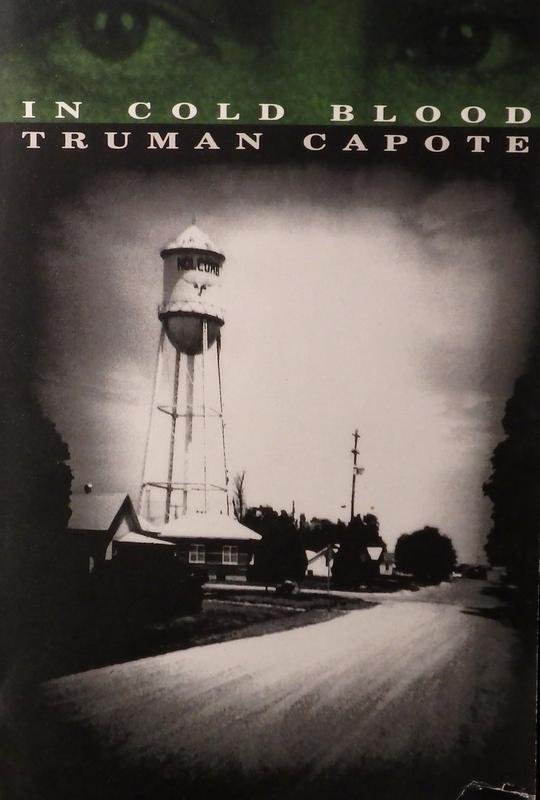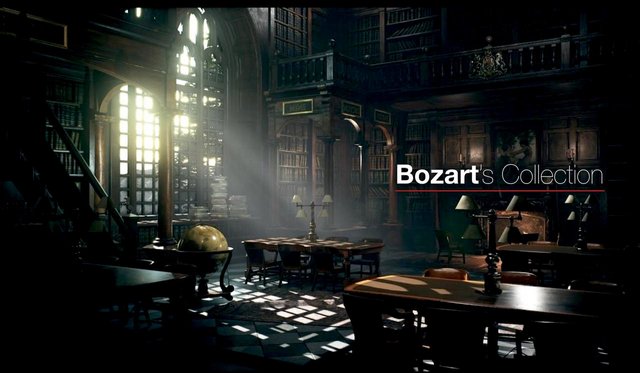Bozart | Yellow Kid Murderer: 06
You're about to read the 6th chapter of 7 part series, "Yellow Kid Murderer." If this is your first visit, check the links:
Yellow Kid Murder | Top of the story
Yellow Kid Murder | Previous chapter
Bozart's Facebook Home
Bozart's Steemit Home
Yellow Kid Murderer
created by BOZART
[Last scene of the last chapter]
"It seems like our time is almost up. It's time now to talk about Pulitzer's last achievement in modern journalism."
"Last achievement?"
"That's right. The last achievement..."
The woman took a deep breath before finishing her sentence.
.
.
.
"New journalism."
.
.
.
6.1
"New journalism, you say?”
She nodded.
"The term refers to the new direction that journalism took during the 60's. When writing articles, journalists injected themselves into the stories they wrote by providing subjective perspectives.”
"So for example?"
The woman gave a smile.
"To put it simply, it would be like writing a novel."
I tilted my head in confusion.
"But even so, articles couldn't actually be written like novels, right?"
The woman let out a loud laugh while I continued to stare at her.
After composing herself again, she responded.
"Do you know what the first work created was of new journalism?"
"What?"
"Truman Capote's 'In Cold Blood.'"
"What's that?”
"Of course, there probably never was a reason for you to have read it..."
"Honestly, I don't think I've ever even heard of it."
The woman nodded in understanding.
"'In Cold Blood' was a non-fiction novel based on a family murder case at a farm in Kansas."
I gave a strange look as if I had heard her wrong.
"A non-fiction novel? How does that have anything to do with journalism?"
"Because that was the start of new journalism.”
"But how does a novel lead to the start of new journalism?"
6.2
She explained with smile.
"Capote may have held a reputation for being a novelist, but he was also a journalist himself, just like any new journalism writer at the time."
"I can't seem to quite understand.”
The woman gave a cold smile.
"New journalism was able to justify novels as news articles."
I was still unsatisfied with her response and pleaded for a clearer answer.
"But how does a novel become an article?"
"The moment a writer's subjective viewpoint is inserted into a story, the story holds a great deal of power."
"How so?"
"The commercialistic system of journalism established by Pulitzer was inevitably closely tied to politics”
She continued.
"But new journalism made journalism itself a power group that could be compared to a political group."
"What do you mean?"
"The only way to compete with a powerful group like a political group is to acquire that extent of power yourself."
"So you're saying that journalism itself evolved to control the existing power?"
The woman gave a nod and smiled.
"Precisely. And there's an individual who can explain this phenomenon very clearly."
My eyebrow raised in curiosity.
"Who?"
"Karl Popper."
"Karl Popper?"
"He was one of the most influential science philosophers of the 20th century."
She paused, then open her mouth.
"He also commented on his perspective for the history, like this"
There is no history of mankind, there are only many histories of all kinds of aspects of human life…
6.3
The woman continued.
"Karl Popper provided us with a philosophical justification for denying the concept of historical determinism that everyone was forced to understand in the classrooms.”
"I understand. According to him, no history is absolute.”
"Thanks to him, non-fiction novels could be recognized as a form of journalism.”
"And was that what Popper intended to accomplish?”
"To be honest, there's no evidence of that. However, it is clear that it influenced the ideology of the period at the time.”
"What sort of ideology?”
"He was an anarchist.”
"An anarchist, you say?”
"The hippy culture and neo-liberalism from the 60's and 70's were ways to rebel against absolute power at the time.”
"But I still don't understand how anarchism and new journalism are related."
The woman smiled.
"The absolute power of the state doesn't simply just collapse on its own."
"Then?"
"There needs to be a worthy opponent to counter it."
"So?"
"With the birth of new journalism, there was a new form of power that could fight against absolute power."
"You're referring to the novel, I presume? Is there evidence that journalism gained that power?"
"Of course."
"What is it?"
The woman opened her mouth slowly.
“Watergate”
“Watergate?”
I gave a look of shock.
"The watergate scandal was a symbolic event that demonstrated the rise of journalism."
I couldn't disagree with her words.
"Okay. Let's say that all that you're saying is true."
I continued with a question.
"But what the hell does new journalism have to do with Pulitzer?"
The woman let out a sigh and shook her head.
.
.
.
"The roots of new journalism were the articles of yellow journalism that were written 100 years before."
.
.
.
(to be continued...)
Don't forget to vote before moving on to Next chapter!
If you want to know more about my works...
Yellow Kid Murder | Top of the story
Yellow Kid Murder | Previous chapter
Bozart's Facebook Home
Bozart's Steemit Home



Thank you for interesting story.
Thank you.
Thank you~ ^^
Thank you! I'm looking forward to the next story!!
Interesting!
Thanks Bozart!
thank you
I waited for your post. Thank you
Thank You!
Thank you.